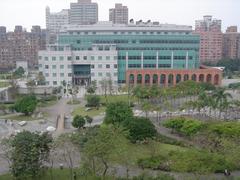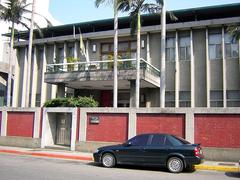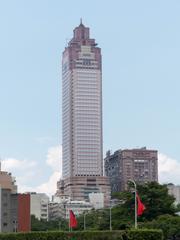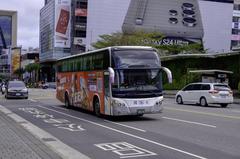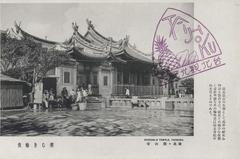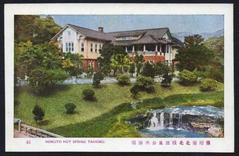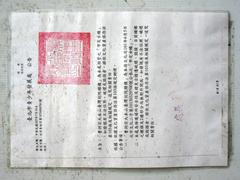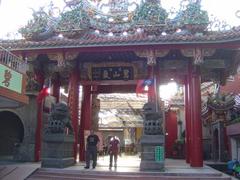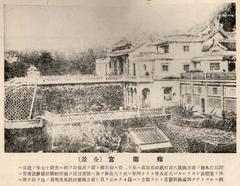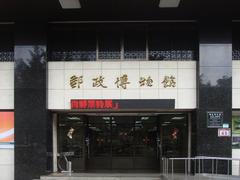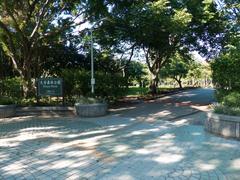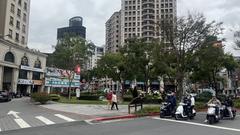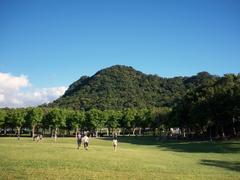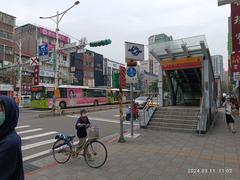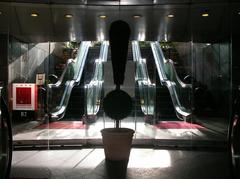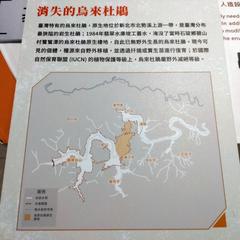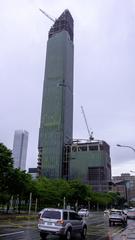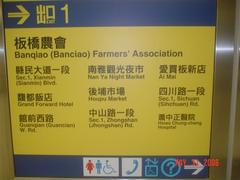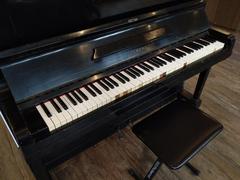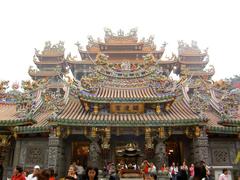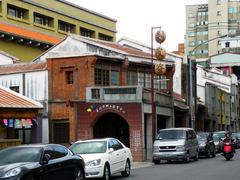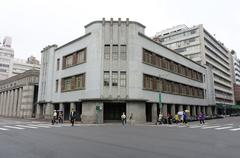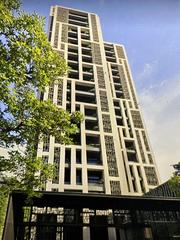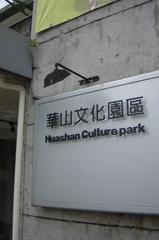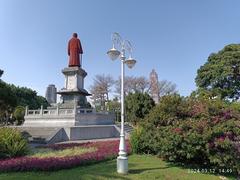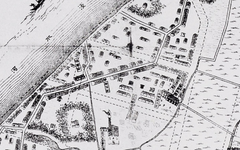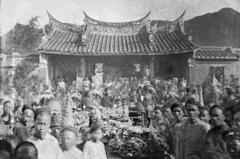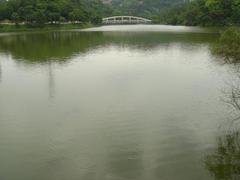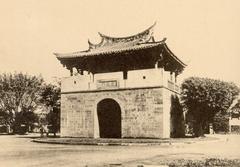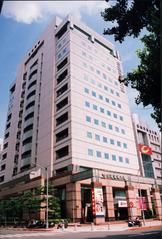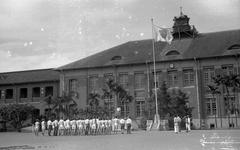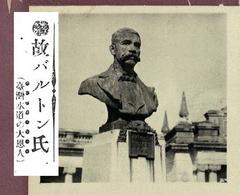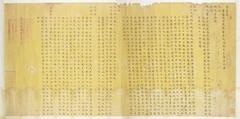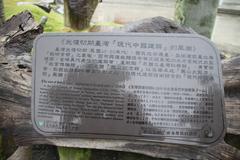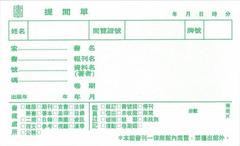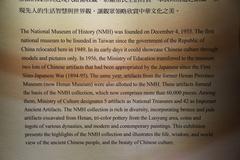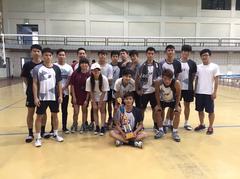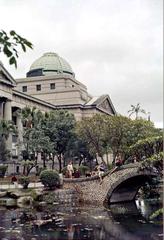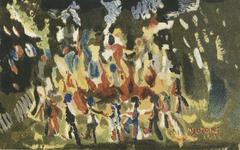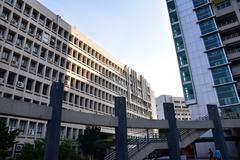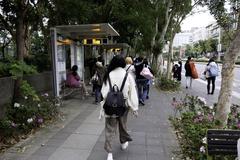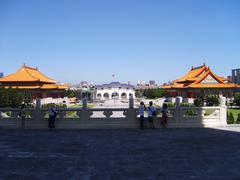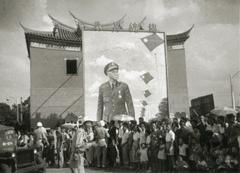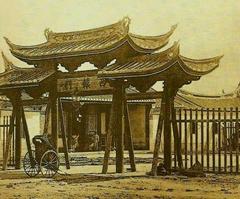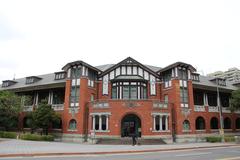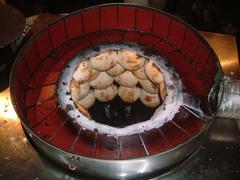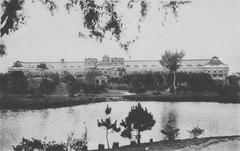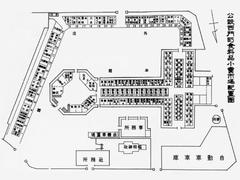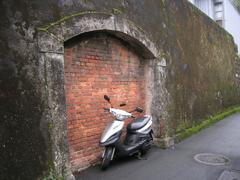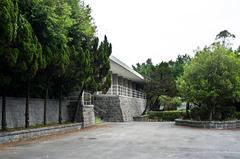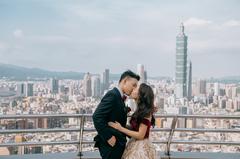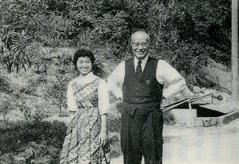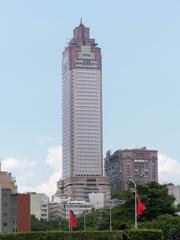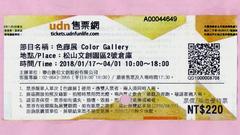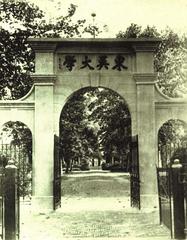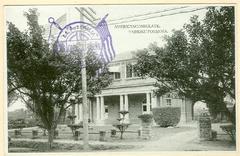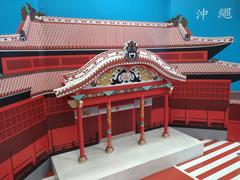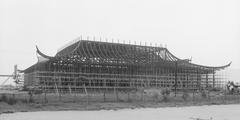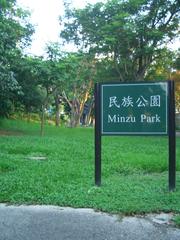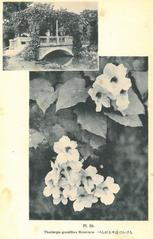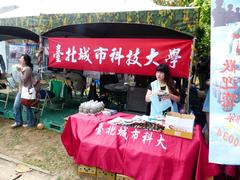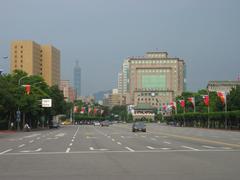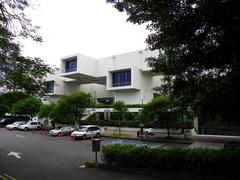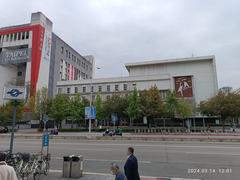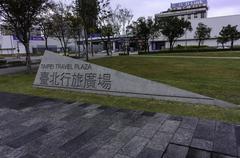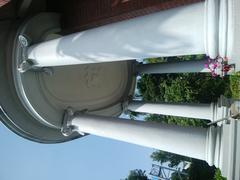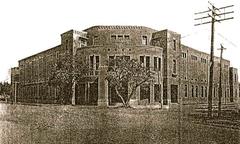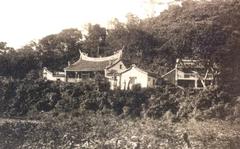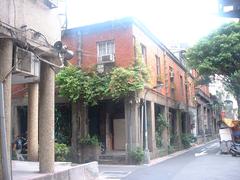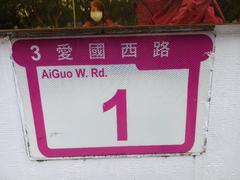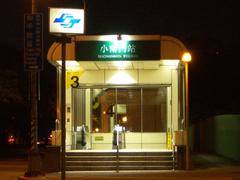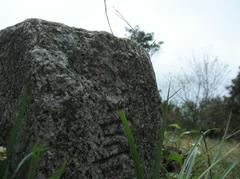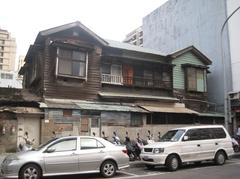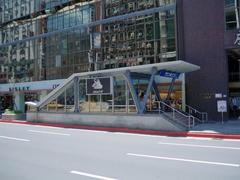Chen Yueji Residence: Visiting Hours, Tickets, and Historical Significance in Taipei, Taiwan
Date: 15/06/2025
Introduction
The Chen Yueji Residence (陳悅記祖宅) is a striking testament to Taipei’s Qing Dynasty heritage and the legacy of Han Chinese settlers. Nestled in the culturally rich Dalongdong (Datong) district, this historic compound offers visitors an immersive experience of traditional Minnan architecture, ancestral customs, and the social fabric that shaped northern Taiwan over two centuries ago. Praised for its architectural beauty and cultural vitality, the residence remains a key heritage site, serving as both a museum and a living cultural hub (Ministry of Culture; Taiwan Everything; Spectral Codex).
This guide provides a comprehensive overview of the Chen Yueji Residence, including its history, architectural features, visiting hours, ticketing, accessibility, guided tours, and nearby attractions. Whether you are a history buff, architecture enthusiast, or cultural traveler, this article will help you make the most of your visit to one of Taipei’s most treasured historical sites.
Historical Background
Origins and Construction
The Chen Yueji Residence traces its roots to the early 19th century, built by the Chen family, migrants from Tong’an County in Fujian Province. Their arrival was part of a broader wave of Han Chinese settlement that transformed the demographic and cultural landscape of Dalongdong (Ministry of Culture). Construction began in 1807, with significant expansions—most notably in 1874—reflecting the Chen clan’s growing prominence in local society (Aroundus). The family were not only successful merchants but also respected scholars and patrons of the arts, actively shaping the region’s cultural and economic development.
Cultural and Social Role
Beyond serving as a family residence, the Chen Yueji compound became a symbol of social status, community leadership, and Confucian values. Its ancestral hall hosted important rituals, while the reception hall welcomed guests and dignitaries, reinforcing the family’s central role in Dalongdong’s civic and educational life. The Chen family’s influence extended to significant community contributions, including the donation of land for the nearby Taipei Confucius Temple (Taiwan Everything).
Architectural Features
Layout and Design
The residence exemplifies traditional Minnan courtyard architecture, with a symmetrical layout organized around ancestral and reception halls, and flanked by left, central, and right wings—often referred to as “protective dragons.” This configuration maximizes space for multi-generational living while reflecting the hierarchical and ritualistic needs of a prominent clan (Ministry of Culture).
Courtyards and Circulation
Central to the design is an open courtyard that functions as a communal gathering place and source of natural light and ventilation. The axial arrangement of rooms around the courtyard embodies Confucian ideals of order and harmony.
Construction Materials and Ornamentation
The Chen Yueji Residence is built from local brick and timber, with thick walls for insulation and traditional mortise-and-tenon joinery providing structural resilience. The roofs feature sweeping, upturned eaves clad in red clay tiles, adorned with intricate carvings and painted motifs. Decorative elements include:
- Commemorative Plaques: Such as the “Zi Wei Lang” (Secretariat Director) plaque honoring Qing scholar Chen Wei-ying (Culture.tw).
- Flagpole Holders: Once used to display poles signifying family members who passed imperial examinations—a rare sight in modern Taipei (Spectral Codex).
- Wood and Stone Carvings: Depicting auspicious symbols, mythological creatures, and scenes from classical literature.
Functional Spaces
- Ancestral Hall: The spiritual core, housing ancestral tablets and ceremonial implements, richly decorated and centrally located.
- Reception Hall: Designed for social gatherings and ceremonies, reflecting the family’s community role.
- Living Quarters: Modestly sized rooms along the wings, opening onto the courtyard.
Contemporary Use and Preservation
Despite a decline in resident numbers, the Chen Yueji Residence remains a vibrant hub for traditional arts. It regularly hosts beiguan music performances and puppet theater training, preserving folk culture within its historic walls (Taipei Times). The residence was officially designated a national historic site in 2018, ensuring continued restoration and adaptive reuse as a cultural venue (Ministry of Culture).
Visiting Information
Visiting Hours
- Tuesday to Sunday: 9:00 AM to 5:00 PM
- Closed: Mondays and certain public holidays
- Note: Hours may vary during special events or restoration periods. Always check the official website before visiting.
Tickets and Admission
- General Admission: Free
- Special Events or Guided Tours: May require advance registration or a nominal fee, especially during Taipei Heritage Day or cultural festivals (Taipei Department of Cultural Affairs).
Guided Tours and Events
Regular guided tours are offered on weekends and during special programs such as the “Old House Time Tunnel” initiative. These tours provide insights into the residence’s history, architecture, and restoration efforts. The residence also hosts workshops, music performances, and craft demonstrations, especially during cultural festivals (Taiwan Everything).
Accessibility
- Mobility: Some areas may have uneven flooring or narrow passageways, posing challenges for visitors with mobility issues. Partial wheelchair access is available, with assistance upon request.
- Facilities: Restrooms and basic amenities are located nearby.
How to Get There
- Metro: Take the Tamsui-Xinyi (Red) Line to Yuanshan Station or the Blue Line to Beimen Station; the residence is a 10-minute walk from either.
- Bus: Several routes serve the Dalongdong area.
- Taxi/On Foot: Easily reached from central Taipei.
Nearby Attractions
Enhance your visit by exploring other historical and cultural sites in the Dalongdong and Dadaocheng districts:
- Taipei Confucius Temple: A major cultural and educational landmark adjacent to the residence.
- Dalongdong Bao’an Temple: Renowned for its ornate architecture and vibrant festivals.
- Dihua Street: A bustling market street with preserved architecture, traditional shops, and local snacks (Chloe’s Travelogue).
- Lin Wu-Hu House and AMA Museum: Additional heritage sites reflecting Taipei’s mercantile and social history.
Cultural Significance and Community Engagement
The Chen Yueji Residence is more than an architectural relic; it is a dynamic center for cultural engagement. The residence hosts exhibitions, tea ceremonies, and workshops that celebrate traditional crafts and local history. Its role is especially prominent during festivals like Lunar New Year and Dadaocheng Arts Festival, when it opens its doors for special programming (Chloe’s Travelogue).
Photography and Visitor Etiquette
- Photography: Generally allowed, but avoid using flash inside the ancestral hall and during private events.
- Respect: Maintain a quiet demeanor, do not touch artifacts or architectural features, and follow posted guidelines.
Frequently Asked Questions (FAQ)
Q: What are the visiting hours of Chen Yueji Residence?
A: Tuesday to Sunday, 9:00 AM to 5:00 PM; closed on Mondays.
Q: Is there an entrance fee?
A: Admission is free; some special tours or workshops may require registration or a small fee.
Q: Are guided tours available?
A: Yes, particularly on weekends, public holidays, and during cultural events. Advance booking is recommended.
Q: Is the residence wheelchair accessible?
A: Partial accessibility; some areas may be challenging due to historic architecture. Assistance is available.
Q: How do I get to the Chen Yueji Residence?
A: By metro (Yuanshan or Beimen stations), bus, taxi, or on foot from central Taipei.
Q: Can I take photographs inside?
A: Yes, but flash and touching artifacts are not allowed.
Tips for a Memorable Visit
- Check for Events: Plan your visit during cultural festivals or guided tour days for a richer experience.
- Combine Destinations: Allocate time to explore nearby temples, markets, and heritage houses.
- Wear Comfortable Shoes: Expect uneven surfaces and some walking.
- Respect the Space: Follow etiquette and staff instructions.
Summary
The Chen Yueji Residence encapsulates the rich historical tapestry and architectural grandeur of Qing Dynasty northern Taiwan, offering an unparalleled window into the lives of early Han settlers and their enduring legacy in Taipei’s Dalongdong district. Its well-preserved Minnan courtyard design, symbolic carvings, and ancestral plaques illustrate the craftsmanship and cultural values of the era. As a living monument, it sustains folk arts and community traditions to this day (Ministry of Culture; Taiwan Everything).
Open to the public with free or affordable admission, supported by guided tours and engaging programs, the Chen Yueji Residence is an essential destination for anyone interested in Taipei’s history and cultural heritage. Its proximity to other heritage sites further enriches the visitor experience. For the latest updates and events, consult official resources and consider using the Audiala app for curated heritage tours.
Call to Action
For more information, guided tours, and cultural events at the Chen Yueji Residence and other Taipei historical sites, download the Audiala app. Stay updated by following our social media channels and explore Taiwan’s vibrant heritage with curated experiences and travel tips.
Sources
- Ministry of Culture
- Taiwan Everything
- Taipei Times
- Chloe’s Travelogue
- Spectral Codex
- Taipei Department of Cultural Affairs
- Culture.tw
- Aroundus
- Taipei Quarterly
- Nick Kembel
